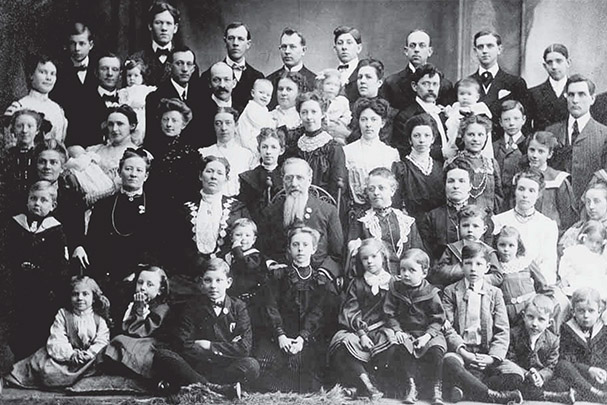How a Random Chat with Mormons Got Me Thinking About Them, Money and Faith

Not too long ago, while waiting for the LRT, I was approached by three teenage boys wearing white shirts. From far, I already knew they were from the Mormon Church—their nametags always start with “Elder” followed by their names.
I got curious and had a short conversation with them until I reached my stop. Normally, I’d avoid these conversations, depending on whether my social meter was high or low (lol). Most of the time, it’s low. But that day, it was high, and I wasn’t rushing to any meetings, so I entertained my curiosity and said hi.
So What Did We Talk About?
Since we didn’t have much time, they briefly introduced themselves and their beliefs. One of them introduced himself as Elder Gadong, and he was from Sarawak—my birthplace. They spoke about their founder, Joseph Smith, and his supposed revelations from God. But the moment they mentioned that Joseph Smith was a prophet, I got suspicious.
In my mind, I was thinking:
“Wait… isn’t Jesus the last prophet and the Son of God?”
“Didn’t Jesus warn us about false prophets?”
But I kept listening out of curiosity. Before we parted ways, they handed me a small booklet and invited me to their church whenever I was free.
Of course, I won’t be going—I’m rooted in the Catholic Church, and I have no reason to explore another faith.
But after I got home, my curiosity didn’t stop there. I started watching videos and reading articles about the Mormon Church, their beliefs, and their way of life.
So What Do Mormons Believe?
They Believe Their Leader Is a Prophet
The LDS (Mormon) Church teaches that their top leader—the President of the Church—is a living prophet who receives direct revelation from God. This belief started with Joseph Smith, who claimed to have translated the Book of Mormon from golden plates given to him by an angel.
But Here’s the Problem…
- Jesus already warned about false prophets (Matthew 7:15).
- The Bible is complete, and adding new revelations is a huge red flag (Revelation 22:18-19).
They Have Extra Scriptures
Mormons don’t just follow the Bible. They have:
- The Book of Mormon (which they claim is another testament of Jesus Christ).
- Doctrine and Covenants (modern revelations from their prophets).
- The Pearl of Great Price (other teachings of their church).
But Doesn’t the Bible Say Otherwise?
- Traditional Christianity believes that the Bible is final, and adding to it is dangerous.
- The Apostle Paul even warned about people preaching a different gospel (Galatians 1:8).
Some of Their Teachings Are Pretty Controversial
The more I read, the more things didn’t sit right with me.
Polygamy Was a Big Thing

- Joseph Smith and early Mormon leaders had multiple wives.
- Some wives were as young as 14.
- Even though they banned polygamy in 1890, some breakaway groups still practice it today.
They Used to Ban Black People from Leadership
- Until 1978, Black men weren’t allowed to hold the priesthood.
- They used to teach that dark skin was a curse from God (yes, seriously).
- In 1978, they suddenly got a “new revelation” and changed this rule.
Their Church Is Crazy Rich

- Mormons are required to tithe 10% of their income.
- In 2019, leaks showed the church has over $100 billion in secret investments.
- Jesus literally said, “Do not store up treasures on Earth” (Matthew 6:19), so this felt a bit off.
But then if they use the investment wisely for the good of humanity, is it good or a bad thing?
It’s definitely a good thing. So who are we to judge right? Let God be the judge. God sees and knows everything.
Anyway, after discovering all this, what then is my conclusion regarding the Mormon church?
It’s definitely a no-no for me.
But let’s look at it in another lens.
If I look beyond the church as a whole, and see these Elders as an individual, what do I see?
I see them as having a very strong devotion and faith to Jesus Christ. Just read about it yourself in this investigator’s report.
And them preaching the Gospel in the public is nothing short of amazing work.
Just think about it, some of the people who are preached to may not want to be attached to the Mormon Church, but just because of that encounter with these Elders, they know about Jesus, and they explore their faith even further and perhaps gets attached to other churches.
Is that a good thing? Of course it is! It’s another soul saved. They are doing God’s work.
However, since we’re in Malaysia, a Muslim-majority country, some may have unintentionally overstepped boundaries by preaching to Muslims, which has led to issues in the past. I hope and pray that they are safe and well, and that God continues to guide them in their mission.
Then I Got Curious, How Do Other Churches Approach Life?
After looking into Mormonism, I got curious about how different Christian groups live out their faith.
- Mormons – Super hardworking, disciplined, and family-oriented, but their beliefs go beyond the Bible.
- Evangelicals – Very passionate about spreading the Gospel and personal salvation.
- Catholics – Deep in tradition, focus on sacraments and charity work.
- Orthodox Christians – More mystical and liturgical, very focused on ancient Christian teachings.
I know, this is a very short summary that Chatgpt and Perplexity came out with, so it doesn’t tell the big picture of what each church and christian denomination’s stand for. But it’s interesting how each denomination sees faith and success differently.
So Is Wealth a Sign of God’s Favor?
One thing I noticed is that different churches have different views on wealth. Some believe that financial success = God’s blessing, while others see it as a potential danger.
But What Did Jesus Say About Money?
“Do not store up for yourselves treasures on earth.” (Matthew 6:19)
“It is easier for a camel to go through the eye of a needle than for a rich man to enter the kingdom of God.” (Mark 10:25)
“You cannot serve both God and money.” (Matthew 6:24)
This made me wonder:
Does this mean I shouldn’t build wealth?
Should I stop thinking about financial success?
And… Is It Wrong to Want a Comfortable Life?
The Bible doesn’t say money itself is evil—it says the love of money is the problem (1 Timothy 6:10). Some of the most faithful people in the Bible were actually wealthy:
- Abraham – Super rich in livestock, silver, and gold.
- Joseph – Managed Egypt’s economy.
- Job – Lost everything but later became even wealthier.
- King Solomon – The richest king of his time, but he warned that money alone doesn’t bring happiness (Ecclesiastes 5:10).
So Here’s the Real Issue…
It’s not about how much money you have.
It’s about what you do with it and how much control it has over you.
What About Saving & Inheritance for My Kids?
Actually, the Bible encourages financial wisdom:
A good man leaves an inheritance for his children’s children.” (Proverbs 13:22)
“Anyone who does not provide for their relatives… has denied the faith.” (1 Timothy 5:8)
So no, it’s not wrong to build wealth—as long as it’s done with the right heart and for the right reasons.
Final Thoughts
So, what did I take away from all this?
- Mormons are super hardworking, but their beliefs add to the Bible, which raises red flags.
- Different Christian groups have different views on life and money.
- Jesus didn’t say money is evil—He warned about letting it control us.
- Building wealth is okay if it’s for a good purpose—providing for family, helping others, and honoring God.
But here’s something interesting I realized…
Everyone Has a Different Money Belief—But Not All Are Good
Regardless of whether someone is Christian, Muslim, Buddhist, atheist, or anything else, everyone has a belief about money. Some believe:
- Money is evil – So they avoid it and struggle financially.
- Money is everything – So they chase it at all costs, even if it ruins relationships.
- Money is just a tool – And it’s up to them to use it wisely.
So What’s a Good Money Belief to Have then?
If we look at God’s wisdom, a healthy money belief should be:
- Money is a tool, not a master. (Matthew 6:24 – You cannot serve both God and money.)
- Wealth should be used for good. (Proverbs 3:9 – Honor the Lord with your wealth.)
- Hard work is important, but so is contentment. (1 Timothy 6:6 – Godliness with contentment is great gain.)
- Saving and investing wisely is responsible. (Proverbs 21:20 – The wise store up choice food and oil, but fools devour all they have.)
- Generosity is key. (Acts 20:35 – It is more blessed to give than to receive.)
Example: How This Works in Real Life
Let’s say someone—whether they’re Christian or not—believes:
💡 “Money is a tool that allows me to provide, give, and create a better life.”
If they have this mindset:
- They will work hard but won’t become greedy.
- They will save and invest wisely but won’t be obsessed with wealth.
- They will give generously to those in need without feeling like they’re losing.
- They will teach their children financial wisdom so future generations can thrive.
Now compare that to someone who believes:
“Money is evil.”
- They might avoid opportunities to grow financially.
- They might feel guilty about earning more.
- They might struggle with money their whole life, even if they work hard.
Or someone who believes:
“Money is everything.”
- They might chase wealth at the cost of their health and relationships.
- They might never feel satisfied no matter how much they have.
- They might lose their sense of purpose, thinking money will bring happiness.
So What’s the Best Approach?
A balanced money belief is one that:
- Encourages hard work but doesn’t lead to greed.
- Values financial wisdom but doesn’t lead to fear.
- Prioritizes generosity without feeling like money is scarce.
At the end of the day, money is just a tool—it depends on how we use it.
💭 So, what do you think about Mormon and how it relates about money and wealth? What money belief do you have, and how has it shaped your life?